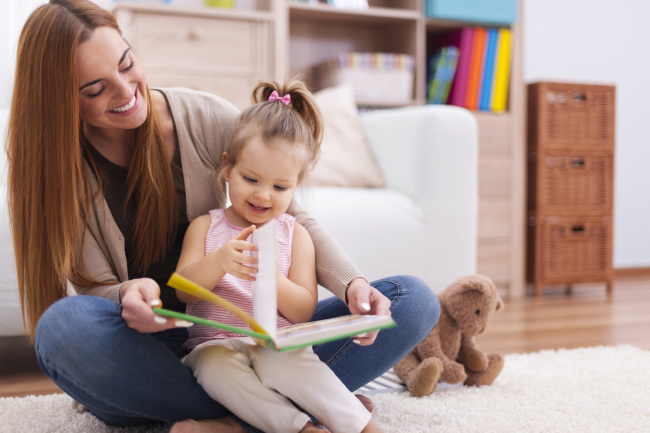It’s never too early to start reading to your little one. In fact, the earlier the better to stimulate their language and literacy development. The Nal’ibali reading-for-enjoyment campaign shares these tips to help get you started…
All babies are born with the ability to learn languages at an astonishing rate. In fact, learning languages already begins in the womb, where the baby is exposed to the sound patterns of her mother’s voice. After birth, the path to getting your child to develop their language skills is simple: chat with them, read and tell them stories and make associations with them. Babies learn to talk because older people talk to them. Learning to read and write are learned in similar ways because listening, speaking and writing are inherently connected.
Creating new worlds for babies
Reading to your baby offers her other opportunities to develop oral language, whilst kick-starting her imagination. Even if your baby is still too young to start talking, it’s important to read books with her. This basic activity has numerous benefits, including:
- Helping you bond with each other
- Developing their language skills
- Stimulating their cognitive development
Tip 1: A baby’s eyesight is only fully developed by about four months, so choose books for very young babies that have simple pictures with strong colour contrasts. Repetition and routine makes young babies feel secure, so you can read the same book over and over again in exactly the same place each day without boring your baby! You can also adjust and rehash what’s written on the page, as long as you and your baby are enjoying yourselves with the book.
Tip 2: Until your baby can sit up on her own, it’s easiest to put her on your lap with her back against you and to hold the book in front of her. Don’t forget to give your baby some attention while you read! A kiss and a cuddle during story time help to build a positive association with reading and books from day one.
Tip 3: Babies enjoy books that have songs and rhymes in them. Read the words to her but also talk about what is in the pictures and name the objects and colours. Make lots of interesting sounds too, for example, ‘mooing’ when you look at a picture of a cow. Little ones are often very entertained by sounds.
Tip 4: By about nine months, you babies enjoy books with flaps, pop-ups and buttons that you can press to make sounds. You’ll probably notice that they begin to engage more with books at this age. For example, she might point to things on the page or try to turn a page.
Tip 5: Between one and three years old, babies’ and toddlers’ ability to understand and use language increases dramatically. Click here to see some of the books that your child might enjoy.
Tip 6: As you read a book, draw your child’s attention to how the characters, plot and illustrations work together by pointing to something and asking simple questions such as: ‘Who is that?’, ‘Where is he?’ and ‘What is that?’. Make comments like ‘I wonder why she did that?’. Questions such as these invite your child to make meaning from the story you are reading together.
TOP TIP: If your child seems disinterested, don’t give up! Try again later, or in another way – or try another book.
For more tips of reading with your baby or to download your free tip sheet on reading with babies and toddlers (available in 6 South African languages), visit www.nalibali.org
Latest posts by Contributor (see all)
- Practical advice for keeping your toddler safe around the pool - December 18, 2014
- Is your pool toddler-proof? - December 18, 2014
- Is it worth it? - December 18, 2014
-
No Comments" href="https://all4baby.co.za/pregnancy/planning-for-baby/2754/working-baby-expo-circuit/">

Working the baby expo circuit
-
No Comments" href="https://all4baby.co.za/babies-6-12-months/health-hygiene-illness/2736/baby-gone-off-solid-foods/">

Why has my baby gone off solid foods?
-
No Comments" href="https://all4baby.co.za/toddlers-1-2-years/learning-development-1-2-years/2730/real-life-toddler-easily-distracted/">

Real life: My toddler is easily distracted
-
No Comments" href="https://all4baby.co.za/toddlers-1-2-years/toddler-issues/2725/advice-mom-whos-toddler-not-speaking/">

Advice for a mom whose toddler is not speaking


 Saving...
Saving...